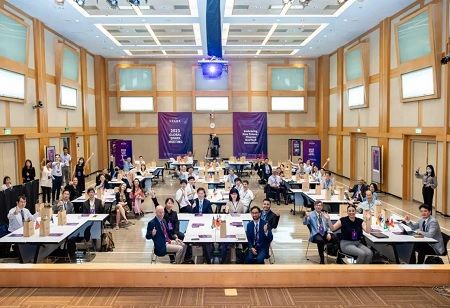- SPARK Taiwan has supported over 400 projects, leading to 65 startups and 55 technology transfers with a 4.5x return on investment.
- More than 2,000 researchers and students have been trained, creating a skilled workforce in biomedical innovation.
- Strategic global partnerships and a co-financed funding model have strengthened Taiwan’s position as a rising biotech leader.
SPARK Taiwan has marked a decade of remarkable success in revolutionizing the nation’s biomedical industry, celebrating its 10-year anniversary with a proven record of innovation, commercialization, and talent development. Since its launch in 2013 by the National Science and Technology Council (NSTC), SPARK Taiwan has effectively adapted and expanded the U.S.-based Stanford SPARK translational model, emerging as a key driver in transforming academic research into market-ready biomedical solutions.
With a bold mission to bridge the gap between academia and industry, SPARK Taiwan focused on a comprehensive approach centered on education, mentorship, and commercialization. Over the past ten years, the program has supported over 400 biomedical research projects, leading to the creation of 65 startups and 55 successful technology transfers. These outcomes translated into $65 million in paid-in capital and $77 million in private venture investment an impressive 4.5-fold return on the original government investment of $17 million.
A major pillar of SPARK Taiwan’s success is talent development. More than 2,000 graduate students, postdoctoral researchers, and early-career scientists have participated in its intensive training programs. These 'SPARKees' are now recognized as a new generation of biotech professionals, equipped to navigate regulatory systems, secure funding, and lead commercial ventures in the biomedical space.
SPARK Taiwan’s evolution is structured around three key phases. During its foundational stage (2014–2017), it launched 23 startups and enabled 8 technology transfers. In the expansion phase (2018–2021), the program scaled up significantly, supporting 40 new startups and 30 additional transfers. Most recently, from 2022 to 2023, SPARK Taiwan demonstrated increased commercialization strength and global reach through initiatives like the SPARK Asia Showcase held in conjunction with Bio-Asia Taiwan which brought together global investors, researchers, and innovators.
Also Read: Taiwan Boosts Education Access to Develop High-Level Professionals
Crucial to SPARK Taiwan’s success has been its strategic partnerships with SPARK Stanford and SPARK Global. These alliances have helped build a globally connected entrepreneurial ecosystem. A unique funding model co-financed equally by the NSTC and participating universities has also incentivized academic institutions to adjust their translational research policies. This includes promoting flexible patent licensing and encouraging faculty to engage directly in startup development.
As SPARK Taiwan enters its next decade, it stands as a shining example of how visionary public investment, academic collaboration, and global partnerships can nurture a resilient biomedical innovation ecosystem. Its achievements not only elevate Taiwan's position in the global biotech arena but also offer a replicable model for other nations aiming to bridge the research-to-industry divide.

